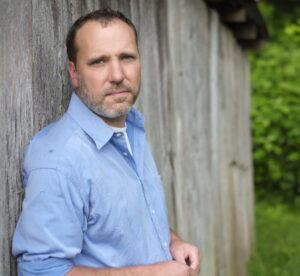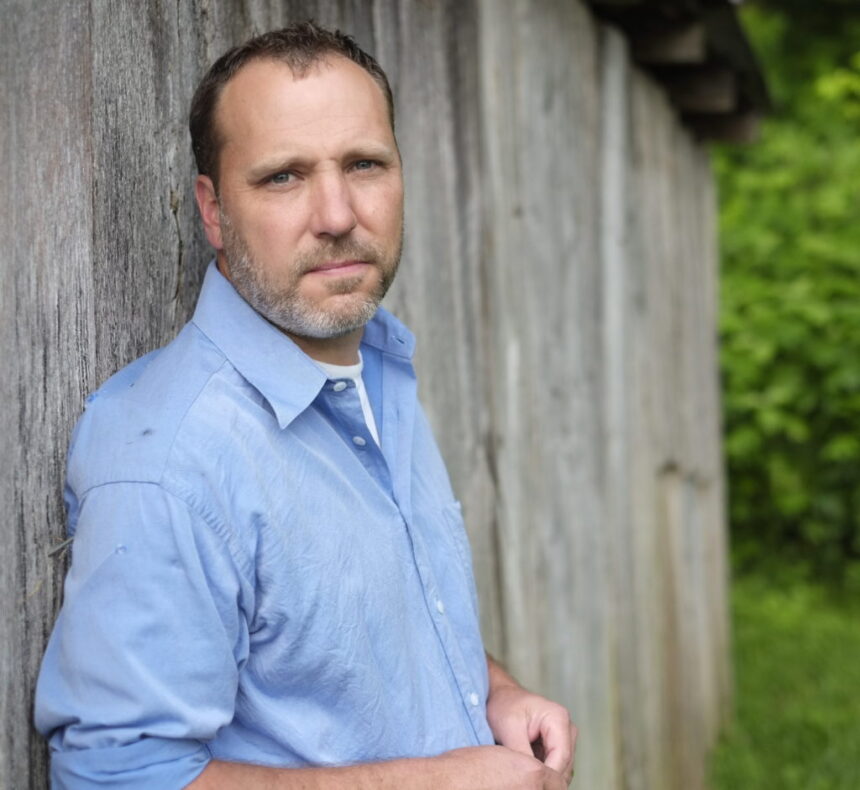
This semester, the Visiting Writers Program will bring poet and English professor Maurice Manning to campus March 14-15. Manning is the author of multiple collections of poetry, including “Lawrence Booth’s Book of Visions,” “Bucolics,” “The Common Man,” and “The Gone and the Going Away.” Manning has taught at DePauw University and Indiana University, and he is now a professor of English at Transylvania University and on faculty in the MFA program at Warren Wilson College and the Sewanee Writing Conference. On Monday, he will deliver a public reading of his work at 8 p.m. in Dow Rooms A&B, and on Tuesday he will deliver a lecture entitled “Here Lies Andrew Baker: An Epitome on Figures of Speech.”
How has Robert Penn Warren influenced your writing?
With Robert Penn Warren, it’s a different situation for me because he was from Kentucky. With two exceptions, many of his poems are implicitly set in Kentucky. A poem that I am particularly drawn to, “Tell Me a Story,” is at the end of his “Audubon: A Vision.” That whole thing is set in Kentucky and imagines John James Audubon roaming around Kentucky during the frontier days, finding amazing birds to paint. Warren is interesting to me because I just feel a kinship to him as a fellow Kentuckian and as someone who also writes about Kentucky as a subject and a source of literary contemplation. I recognize Kentucky as a wonderfully ambiguous place. It’s a little bit Southern and a little bit not Southern. It’s a little bit in-between — in-between geographically, in-between culturally, in-between historically. I tend to think of it as a small lens through which to examine the whole country.
Who else has been a major influence on your writing?
Writers have inspired me for different reasons. For instance, the poet Gerard Manley Hopkins from Victorian-era England is one of my all-time favorite poets because of his association of the natural world with the spiritual world. I agree with that observation, so it’s natural for me to be drawn to a writer like Hopkins.
One of the things that has jumped out in my reading of your poetry is how conversational your poems are. They all seem to have a very distinct voice and someone to whom they’re being addressed. Is that something that’s intentional? What role does this conversational element have when you’re writing your poetry?
One indirect way of answering your question is to say that when I’m writing, I talk it out as I compose it. So it’s important for me to believe that a line of a poem is something worth hearing, as distinct from something worth reading. Does that make sense? So when I’m writing a poem, I’m walking around the room saying the line out loud to hear how it sounds. If it doesn’t sound right then I change the line and fiddle with it until it sounds right.
When I was a very little boy, I was fortunate to have a whole bunch of really old relatives around. They were great talkers and great storytellers and my interest in the idea of a story came from hearing people tell family stories out loud. I think I just have this kind of ingrained impulse to treat language as something that we listen to. There are all kinds of subtle features that you can put into the line of a poem that are purely auditory features. They don’t necessarily have anything to do with the meaning. They’re just little auditory effects that are a part of the English language. I like approaching and writing the line knowing that I’m going to be using
language as a kind of musical instrument, if that makes sense.
I feel like there is an unintentional poetry spoken all around us all the time. Around here, in the local vernacular, people will say a sentence in casual conversation. I’ll hear it and I’ll think, “Good Lord, that’s a line of iambic pentameter.” And that’s just amazing to me. Unless you know to listen for it, you just don’t hear it. There is a natural rhythm to the language that I grew up hearing and once I got a little more studious about poetry, I could figure out that much of the way people talk has a poetic music in it.
Many of the poems consider the natural world. The speakers in the poems seem to be closer to the natural world than to other people. It’s something they feel self-conscious about. Where does that come from?
That is a really interesting observation. I would not say that I had that in mind when I was working on those pieces, but it makes a lot of sense. I personally feel much more sane and, in a way, loved in the natural world than I do in certain dimensions of the human world. Some of that goes way back to when I was a kid. I just wandered in the woods all the time, and I’m aware that that part of my childhood was just magical. It was a serious saving grace from some pretty unpleasant things that were going on in our household. My parents had a very uproarious marriage, and so being in the household wasn’t a lot of fun at times. I was able to just go outside and wander in the woods and follow creeks and things like that, often alone or with a single friend. It really taught me that there is a place in this world that is composed of peace and composed of calm and quiet and beauty — all of those things that we like about poetry.
There’s a lot of hesitation that comes across through the speakers. There are many times when the speaker will say something, stop, and then say it again. What’s behind that?
In that particular book, I was conscious that I wanted the poems to be overtly narrative. I wanted there to be a story told in each poem. The kind of hesitation that you’re talking about — stopping the story from going forward, that sort of thing — that might be a way to indicate that when any of us is telling a story, we can sometimes get carried away with it. We can sometimes amaze ourselves. In telling the story, we can discover a feature of the story that we hadn’t thought about previously, and we stop ourselves, and we think “Wow, here I am. I’ve wandered into this labyrinth telling this story that I thought was familiar to me and there’s something right here in the middle of it that I didn’t know was here before.”
I love that about sitting down and writing a poem in general: you can get lost if you don’t try to write a poem with the end result in mind. It’s not a calculated decision, it’s like taking a walk. That’s how I like to write a poem. It’s very liberating.
I usually don’t sit down with an agenda for a poem. I want to take a couple of steps and see where it goes from there. Sometimes, when you’re taking a walk, you can find yourself rather pleasantly lost, out of your familiar context and you can go beyond where you’ve already been. That’s just important to me in terms of my experience in writing poems. I want it to be a completely liberating experience.
Do you have moments during that free experience, that walk, in which the writing can become frustrating and you have to go up a steep hill along the way?
Yes, absolutely. As I often tell my students, learning how to write a poem is, in many ways, a lifetime task. Even if you’ve been doing it for 15-20 years, there will always be times when you realize, “There’s something else I have to learn, something in general, some technical features.” For each person who is aspiring to be a poet, you have to learn something about your own process too, all the time. You have to be aware, especially as a young person starting out, that you have to give yourself some slack. You have to realize, “How I’m doing this now, at 20 years, is going to change. When I’m 40 years old, I’m not going to be doing it this way. I’ll encounter new methods, new practices, new skills that I’ll learn to fold into my process.”
That’s how you grow in poetry, for sure, and probably many other things. Just because you feel really excited about a poem that you wrote when you were 20, you’ll feel really excited about a poem you wrote when you were 30, and you’ll put the two side-by-side, and it won’t even seem like the same writer. Writing is a very organic process, but, just to continue the gardening metaphor, you can’t just throw seeds out on the ground and expect them to grow into something that you’ll eat for the next six months. You have to tend it. Even though there is an organic quality, you have to be consciously taking care of things and all the features, and you get better at it.
The title of your talk on Tuesday is “Here Lies Andrew Baker: An Epitome on Figures of Speech.” Tell me a little bit about the Andrew Baker in the title — how did you encounter him?
I had a great-great-grandfather’s grave in southwestern Kentucky. Several years ago my mother and I and a cousin were tracking down old family cemeteries in the woods and we found his grave. Whoever carved the epitaph on the grave spelled “h-e-r-e” incorrectly. My interest in it for the purposes of the lecture is the use of figurative language, which we talk a lot about in poetry.
~ Compiled by Amanda Tindall and Chris McCaffery

